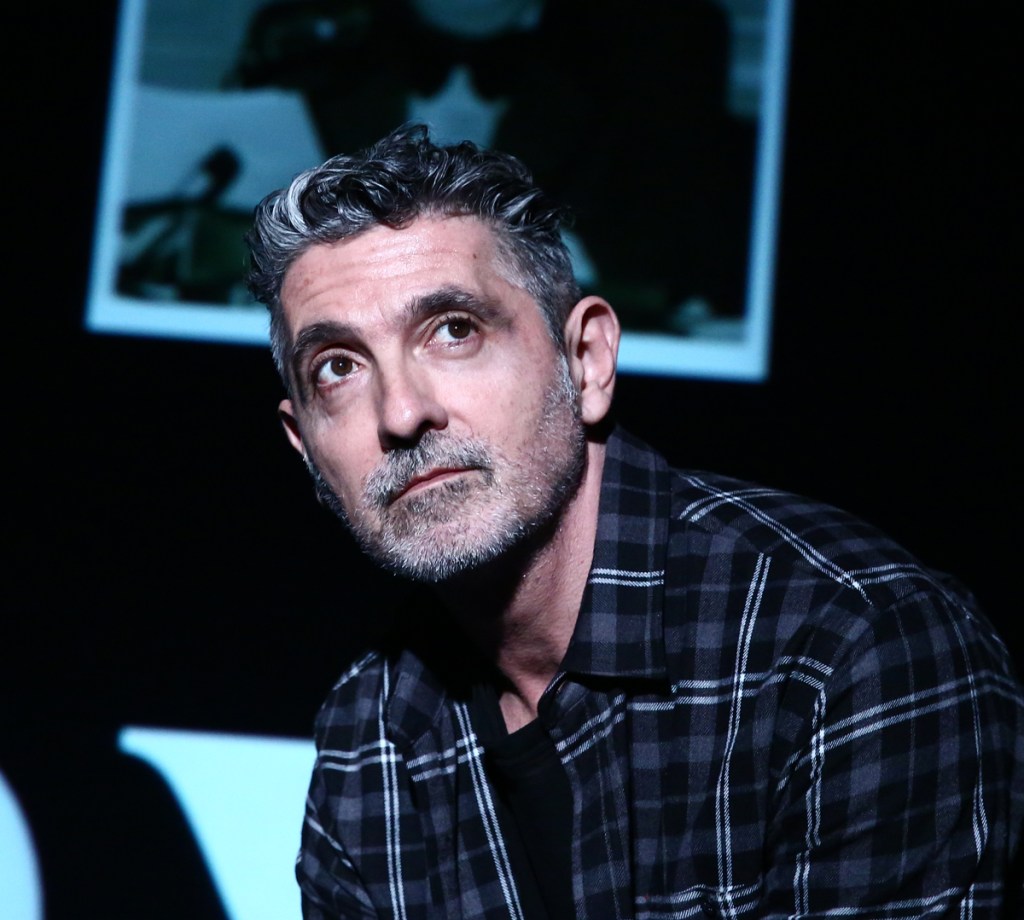McCann: Q & A with playwright Ain Gordon
Published 9:48 am Thursday, May 23, 2019

- Ain Gordon
Previously, I mentioned the play “217 Boxes of Dr. Henry Anonymous” by Ain Gordon — about the life of Winchester native Dr. John Fryer (1938-2003) — was being produced at Transylvania, his alma mater.
I attended the play last Thursday. Then Saturday, I went back and conducted a 20-minute interview with the playwright.
A portion of that interview, concerned with why he became a playwright, follows.
BM: In the play program, there’s this beautiful, long thing about what you’ve done, what you’ve accomplished, but it doesn’t say anything about who you are. Who are you?
AG: Who am I? I wish I knew. I grew up around old people, primarily. My father, his mother and father lived in Coney Island, and she had five sisters and a brother, and my great-grandmother was alive.
My mother is English, so her family was in England, and there were also three sisters and two brothers, and of course my other grandparents.
So I’d be dropped off in London, England for a month, and I’d also be dropped off in Coney Island at my Jewish grandparents’ house on Friday nights when it was the Sabbath. So you couldn’t draw or read a book or play with Legos or watch TV or listen to the radio or play cards.
The only thing to do was talk. And in England, they didn’t have a TV set at all. They had a radio, which they only listened to on Saturday. So there was nothing to do but ask all these old people about themselves. “Tell me a story about yourself.”
And two things happened for me: I saw over time, the stories changed, and what silly little things would come out, would fall out of their mouth about the story.
The little details that were kind of dramatic, or sometimes scandalous, would fall out maybe the fifth time, the sixth time. I would come back to my parents and say, “Did you know?”
And they didn’t know any of this. So I began to see history as not reliable in an interesting way and to understand inside these older people, they became cubist self-portraits.
It’s like the many other versions of themselves suddenly begin to appear, their younger, more lustful, more dangerous, more complicated selves.
My parents were not interested because they were their parents. I felt like I needed to preserve those stories and I think that just became what I’ve been doing ever since, just not about them anymore. That’s how I think I got to be where I am.
BM: When did you become a playwright?
AG: I don’t even usually use that word now. Sometimes I write pieces; sometimes I write plays, I’m not hierarchical about those forms; they’re just different and different demands. I didn’t admit to any of that for a long time.
You know, you can’t do summer stock until you’ve done summer stock. It’s like this closed circuit. So I got into my first summer stock because my father pulled a string.
When I was 21, as a directing intern — I’d never directed anything, nor did I have any interest in that; I still wanted to be an actor at that point. But it was the way to get in.
They went around the room — there were 11 directing interns, and everybody had to direct something for the second stage.
And they said, “Everybody, now tell us what you’re planning to direct.” And I went last, which is my usual preferred place, and everybody was saying, “Spoon River Anthology” actually was one of them, you know, “Cat on a Hot Tin Roof,” or whatever it was, and they were all saying plays.
I thought, “Oh, f***. They’re all saying real plays because they’re real directors. Then they’re going to get to me, and they’re going to realize I’m a fraud.
OK, the only way to get around this is if I direct something nobody’s ever seen before, and they can’t say I’m doing it wrong.
So they got to me, and I said, “I’m going to be writing an original piece, and then I’ll direct it.”
Never done that.
So I did that, and people responded strongly to it.
Afterward, I just said I was writing things; I refused to call myself anything. It wasn’t until maybe ’92 that I started saying OK, I make theater.
The “playwright” word entered about ’95. Now it depends very much on the room I’m in, who’s listening, whether I say writer-director, theatre-artist, playwright. I’m not wed to any of them, and all of them have connotations that open and close doors.
But text, for sure.
I love words.
Bill McCann is a playwright, poet, flash fiction writer, and teacher who writes about arts events and personalities.



